On this page I will cover the content of my presentation, as well as evaluating it all based on criticism from both tutors and peers.

Welcome to my presentation, here I will explain all you need to know about my final project!

My final project is to build an electric guitar from its most basic components, seeing through the process of a luthier, going from a set of routed wood blanks to a fully finished, functioning electric guitar ready for use. Alongside this, documentation via a weekly YouTube series will play a large role throughout.

Strengths: Confidence, research ability, and skill acquisition.
Skills: Collaboration, digital and physical skills, and strict organisation.
Influences: Burls Art and other YouTube creators, Prince.
Previous Projects/Experiences: Performance projects have given me more confidence, the live events management project showed the importance of collaboration, the academic essay greatly improved my research skills, my final project last year was all about understanding new technology, throughout the course I have built digital and organisation skills.

The aim is to research, design, and construct a fully-functioning guitar from scratch, whilst documenting this process via filming, editing, and releasing a YouTube series.
The main objectives cover construction (acquire and implement craft skills, finish and join guitar components, solder and wire electronics together, etc.) as I have completed the majority of my research already and the project is centred around the build process.
Secondary to that are the documentation objectives. Examples of these are to record the process, including footage of woodworking alongside evaluative commentary spoken to the camera; to learn and use basic editing skills to compile footage, and to package that content in videos for a YouTube series, as well as potentially quicker, short-form videos for use on TikTok.

Research has been completed in regards to woods, aesthetic design, and certain technical details
Research that will be undertaken covers woodworking techniques, luthiery skills, pieces of hardware (such as wiring, pickups, etc.), and digital content creation. To find the information I require, I will be watching YouTube videos, reading articles, and asking experts directly, as a way of introducing of more directly relevant research into my project, giving me greater insight.

Personnel:
- Tony, who has very kindly granted me permission to use the facilities in the woodworking shop.
- Paul, who I will work alongside to produce my video series.
Resources:
- Woods: body and neck blanks, fretboard.
- Guitar Hardware: tuners, bridge, fretwire, etc.
- Woodworking Equipment: saws, sandpaper, machinery, etc.
- Painting Equipment: primer, paint, clear coat, etc.
- DIY Tools: soldering iron, screwdrivers, vices etc.
- PPE: respirator, gloves, goggles, etc.
- DSLR Camera, SD card, and tripod
- PC/iMac

Risk assessment vital to have prior to beginning certain tasks.
PPE will be worn where necessary to prevent hand or eye injury, inhalation of aerosols or dust, and skin irritation.
Before I begin using any unfamiliar machinery or tools, Tony will brief me on its use and safety procedures.

Timetabled plan with allocated slots for construction. Documentation ongoing throughout, Thursdays will be dedicated to editing. Weekly videos incl. build process and evaluations.

Preparation – Possess backup plans in the case of certain parts of the project (or the project itself) deteriorating. As an example, if I fail to apply lacquer before the deadline, I will simply oil the guitar and clear coat upon returning to college. Assess potential complications such as faulty hardware, human error, or unforeseen circumstances, allowing me to prepare ways to deal with such troubles arising.
Mitigation – Before taking on any task I’m unfamiliar with, I will practice on offcuts and spare wood to ensure I have some degree of ability, reducing the chance of human error becoming a costly factor in the project. I have also limited risk via sourcing pre-worked pieces, such as the body and the fretboard.
Humility – I am not the best at asking for help as I like to take things on myself and do my best – however this project doesn’t allow room for overconfidence. I will have to know my limits and ask for help from those more experienced, an important quality to build up.
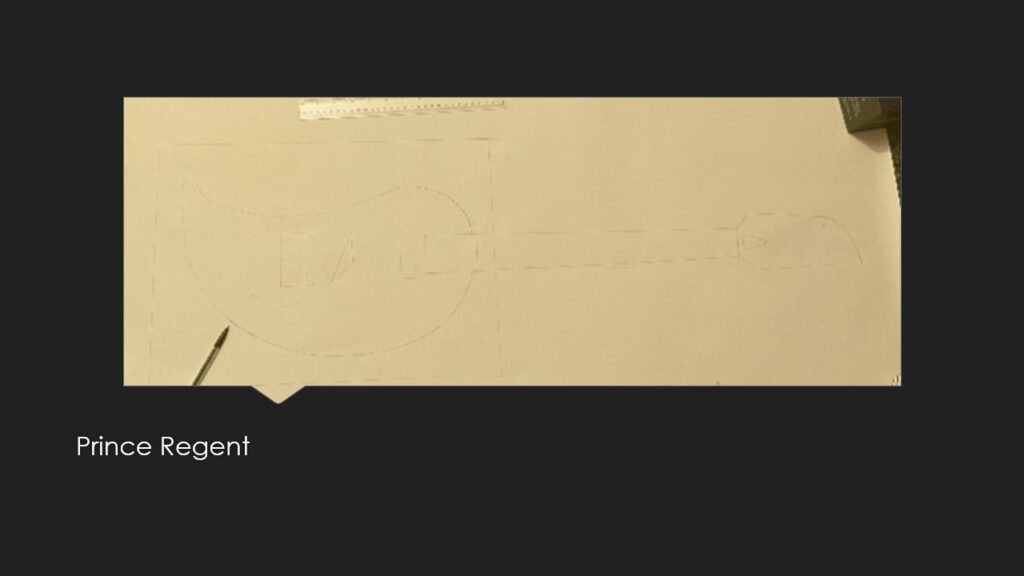
Woods; ash body, maple neck, ebony fretboard.
Aesthetics (the colour and the shape); black and white in a curved teardrop shape, like a motif used in paisley print.
Influence of Prince
Hardware (bridge and pickups); hardtail bridge with pickups in a SS configuration.
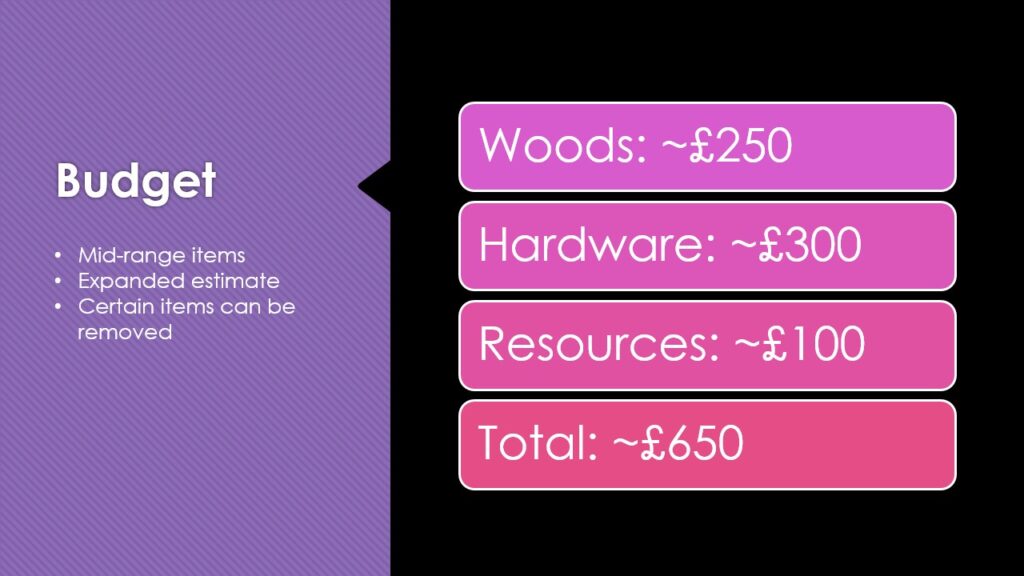
Broken down into three areas:
- Materials: ~£250
- Hardware: ~£300
- Resources: ~£100
- Total: ~£650
This figure is influenced by the pre-worked items, as well as the quality of goods being purchased. It is an estimate and is subject to change. I recognise this is a large amount but I will finish this project with a custom guitar that I will have with me for years to come, and over time it will pay itself off.
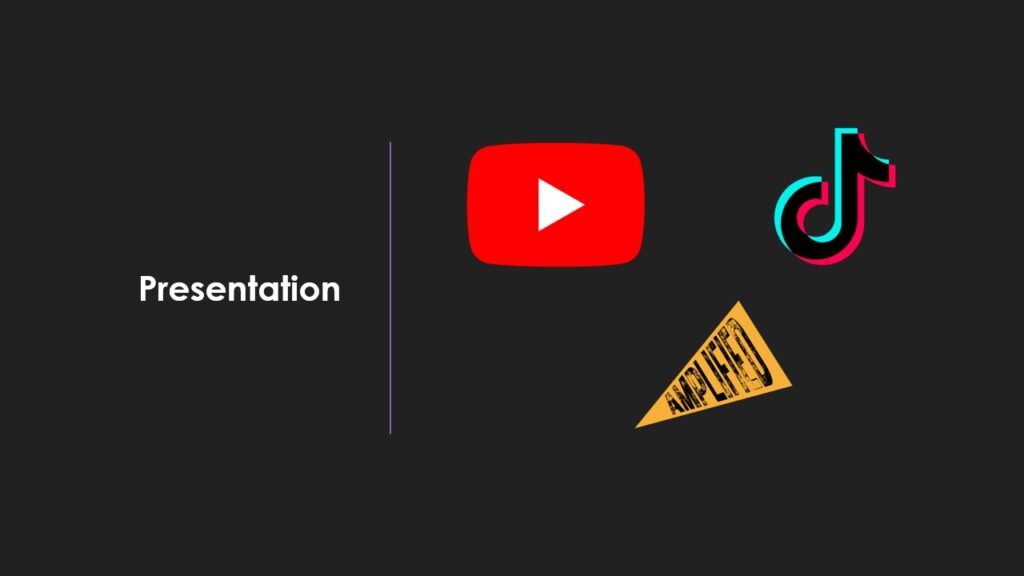
The entire build process shall be filmed and edited with the intention of releasing it as a YouTube series, with weekly episodes detailing the processes undertaken and equipment used, as well as reflections and evaluations spoken to camera.
I will experiment with uploading short-form videos to TikTok; this can promote the YouTube series as well as finding a place within a community of people with a similar interest
Both services are known for allowing people to contact others with a shared interest who could potentially offer advice, tips, and general help.
I will also create a short video recapping the full project, which shall be displayed at the final Amplified Showcase. I will introduce the video whilst carrying out the guitar.
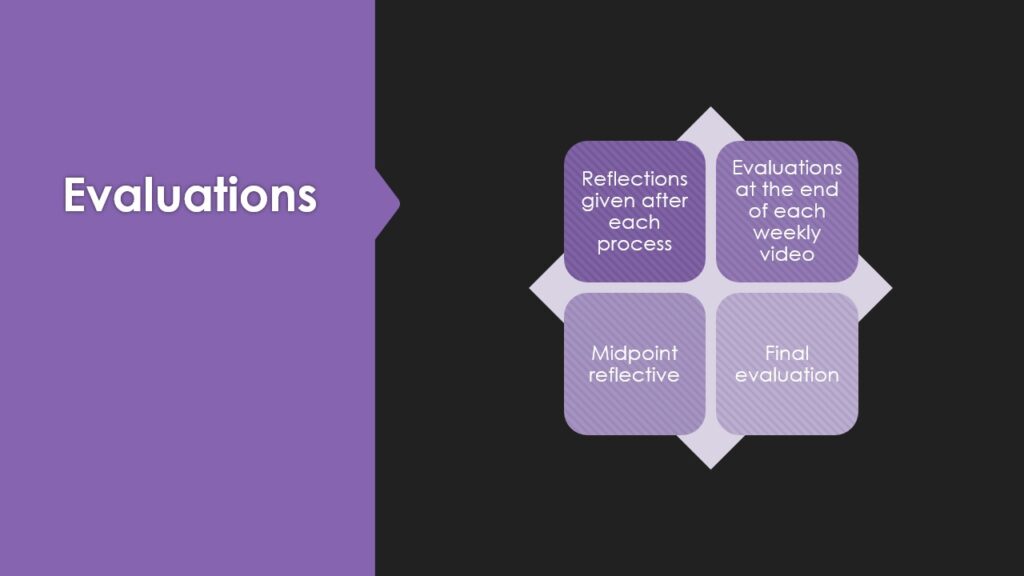
After each task/process I will be giving my quick reflections to camera, then at the end of each episode I will give more of an evaluation. These evaluations will detail the positives and the negatives of the build process, where I achieved successes and where I could’ve done better or improve for the future.
At the midpoint of the project I will give an overview of what I have completed so far, and at the end of the project I will give a more detailed reflective, talking through what I am happy with, what could be done differently if I was to undertake the project again, and potentially answering any questions that viewers may have or that I wish to answer.
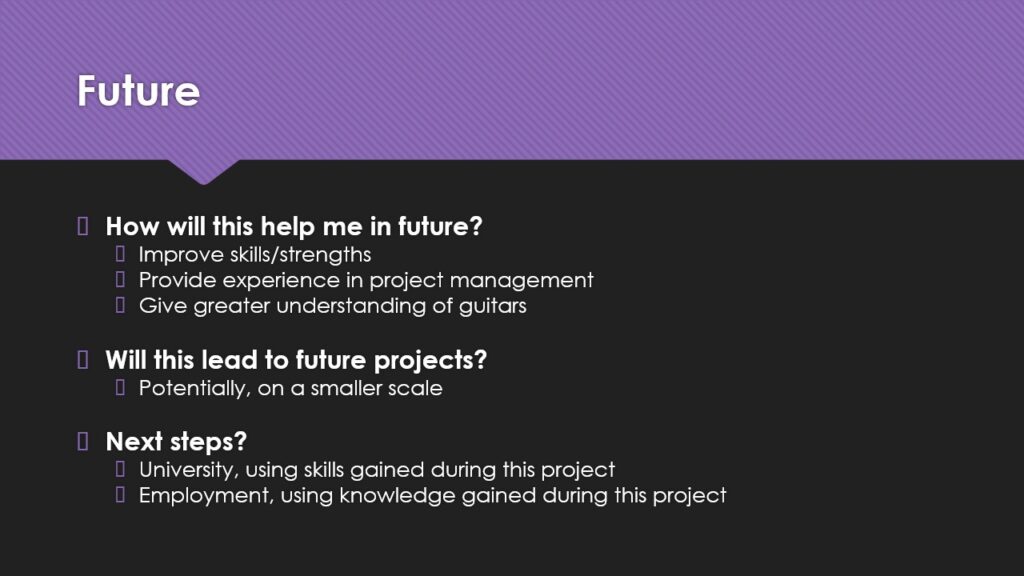
How will this help me in future? This will improve certain skills, as mentioned earlier, that will help me in future endeavours. It will also provide an element of experience in project management, something I’m not too familiar with, whilst also giving me a greater understanding of guitars which, in turn, should help me become a more confident instrumentalist.
Will this leads to future projects? Potentially. I don’t see myself building any more guitars but it opens the door to smaller projects, such as building a kit guitar or refurbishing an old one.
Next steps? University, where I can demonstrate the skills ad abilities learnt over the course of this project. Employment is also a possibility; using the technical skills and knowledge picked up, I could perhaps find work as a guitar tech or offering repairs. I am unlikely to look into this as of now as I would require more knowledge and experience before offering my services to anyone in a professional manner, I wouldn’t feel confident charging for work undertaken at my level.
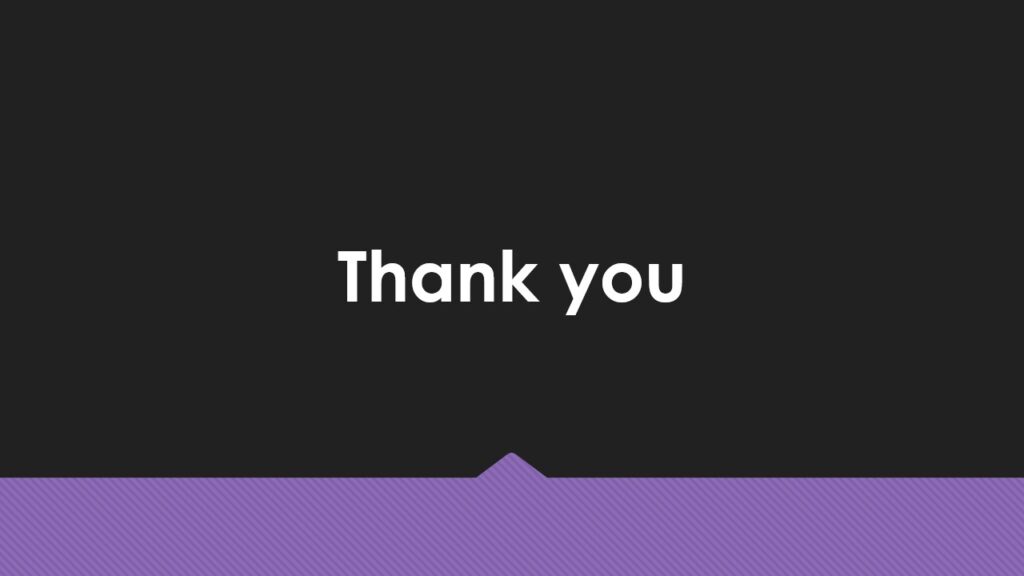
Thank you for listening, any questions?
Feedback
Self Feedback
Firstly, I am happy with the level of detail that I managed to put into this presentation and how I put across that information. For the most part, I believe I was clear about my intentions and reasoning, as well as giving an idea of the research and planning that goes into a project like this. The notes I wrote gave me enough information to remind me what I wanted to say, whilst being concise enough to ensure I didn’t look at them for too long.
Things to bare in mind when creating presentations in future are audience engagement and duration. Being talked at for 25 minutes uninterrupted isn’t a pleasant experience, so I should look for ways to make my presentations more interesting whilst still sharing all the necessary information, this can come in the form of short videos, images, perhaps even asking questions to the audience. As for duration, it is a difficult task to trim down a presentation when you have such a wealth of information to share, but with time I am sure I would’ve been able to reduce the duration to around the 20 minute mark.
Overall, I am rather happy with my presentation, I am improving my presentation skills and the feedback afterwards opened up some interesting dialogues and ideas that I will have to explore.
Peer Feedback
Luke C’s question around promotion raised a point which I had not considered in great detail, about if/how I aim to promote and market the YouTube series. I said that the TikTok short videos could be a good method to lead into longer content but I don’t have any solid plans on how exactly I would go about doing that. Would I quickly document certain processes or tasks or would I give out tips and tricks to other people with similar projects? I’m not certain at this time but I will think over it prior to beginning the project.
Luke Z also asked about the video content, allowing me to mention what kind of information will be put into the YouTube videos. I will be mentioning hardware and design choices as well as giving explanations as to why those decisions have been made. Perhaps I could expand on this and create a document at the end of the project detailing every wood, piece of hardware, and tool that was used in the construction of the guitar, giving anyone interested a clear location to find such information.
rob
Whilst I admit that a 25 minute presentation consisting of only speech isn’t the most interesting experience, I tried to add an element of engagement in physically handing out my design for people to look at. I could’ve added a video into the presentation but I felt that the duration was long enough. As for my lack of enthusiasm, I will have to disagree. I couldn’t be any more enthused about this project and I wouldn’t have given myself such a challenge if I wasn’t ready for it. I could perhaps show that enthusiasm more during the presentation, but it is tough to keep the energy up over such a long time.
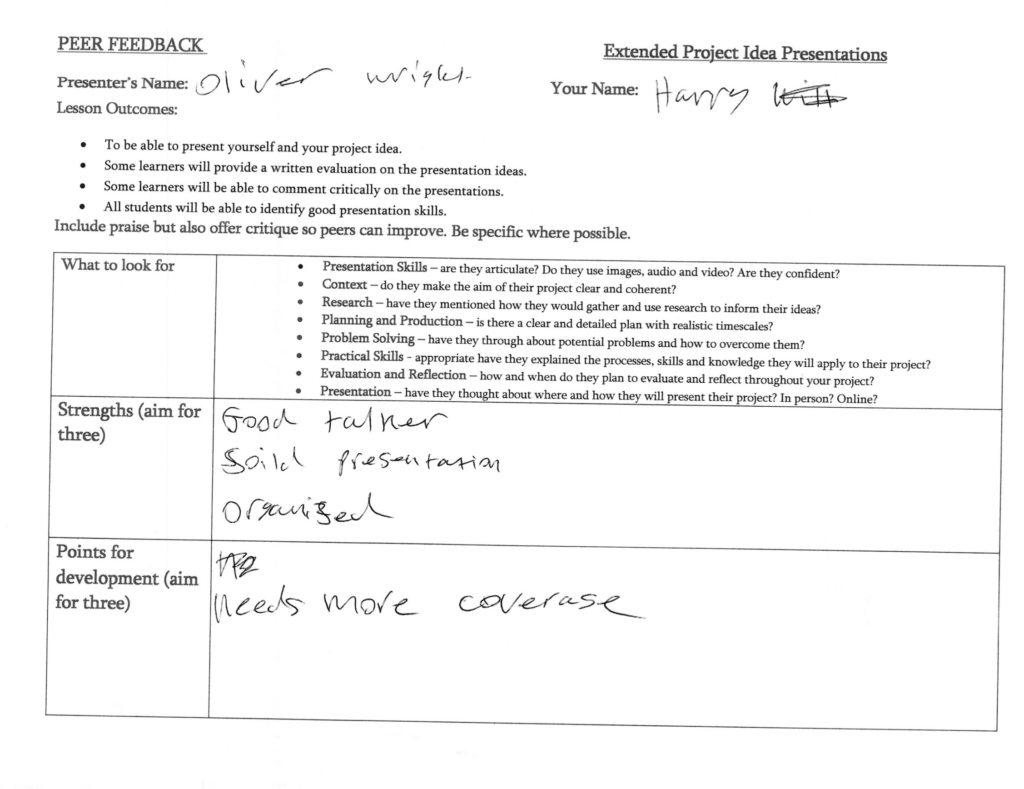
Truth be told, I’m not certain what is meant here, unless we are talking about backup plans, which is my best guess. This is something I will address, covering myself in case of unforeseen circumstances.
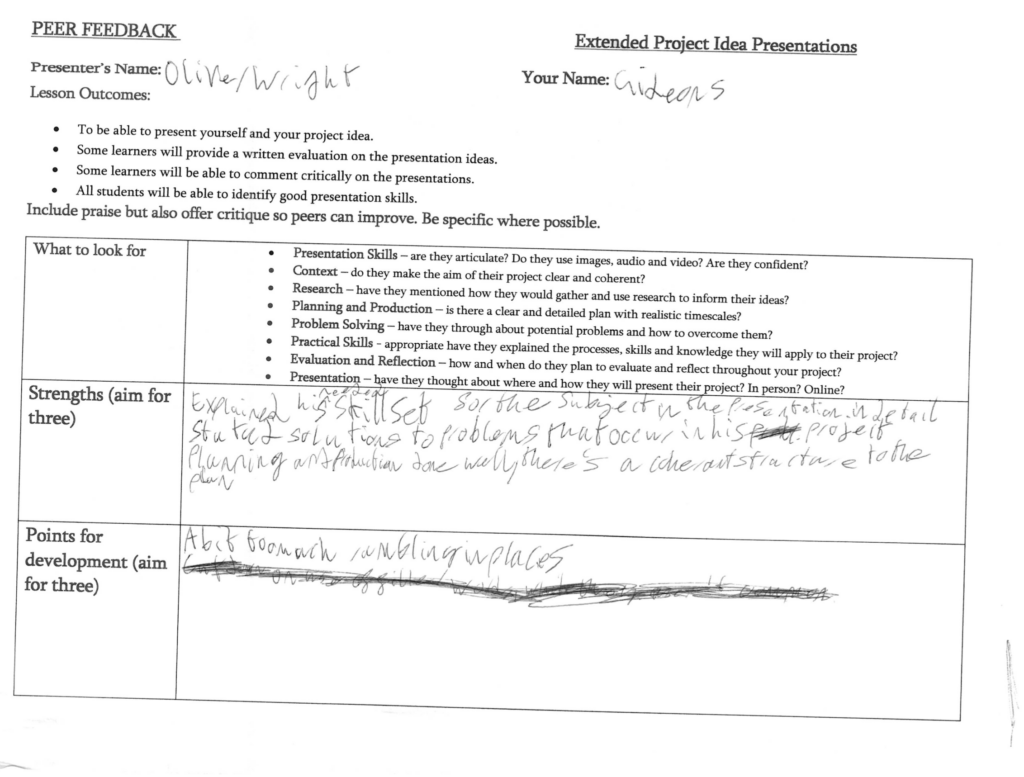
“A bit too much rambling in places,” is a reasonable criticism of a 25 minute presentation. I had a lot of information to share and I tried to trim down any excess, however one could say I lingered a touch too long on certain slides.
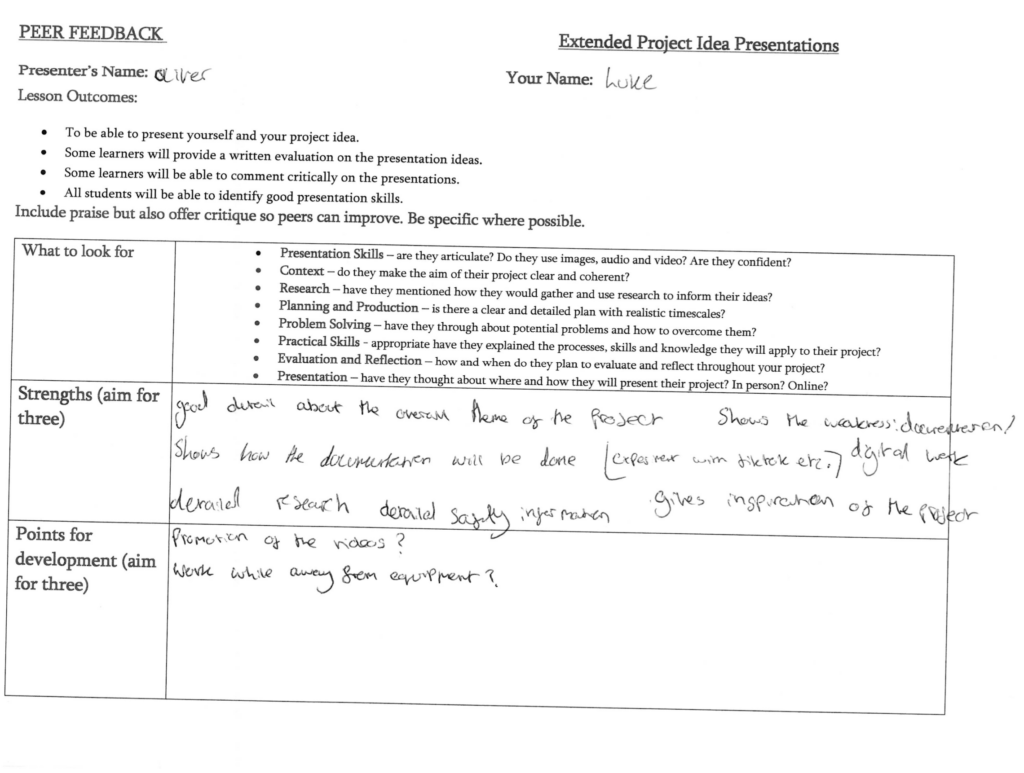
Luke C raises the point around promotion (which I responded to earlier) as well as wondering what work can be done away from the equipment. This is something I need to look into, whether or not I will edit at home, allowing for all my time within college to be spent building; and if I am able to work on the fretboard without needing the workshop’s equipment. I will have to look into the time required in the workshop near the start of the project and balance my workload.
Tutor Feedback
With regards to the concerns raised about the YouTube content, I would say I was definitely trying to think of the solution at that point when I should have taken the words away to consider.
In any case, Nic’s first question about the purpose of the video was a very valid one. It would be quite a task to balance entertainment value alongside project evaluations, so either focusing on one aspect or separating the two would be a possible solution. He also raised a good point about the workload associated with the editing; it is time-consuming and something I am not acquainted with, meaning it is an even greater task. Committing to a single video was something that I was apprehensive to do as I looked forward to maintaining a series in which people can keep up with the progression, however, I mustn’t aim too high and I believe that a consistent, weekly series would be a stretch for me. I will still shoot footage and edit weekly, but it will go towards one longer video to be released after the conclusion of my guitar build.
Nic also mentioned the possibility of collaborating with my peers who share an interest in guitar technology – whatever form that comes in – and, again, this is something I hadn’t really thought of. I wasn’t aware of the extent to which certain peers were familiar with guitar technology so I didn’t think to include them, now however, I would be open to speaking with them further about the project at certain points to ask for advice, feedback, and general constructive conversation.
Next, I was asked about my backup plans. I gave one example of a backup plan in the case of not reaching a certain deadline, however I could have expanded on the thought process behind such a decision and how that will influence what potential backup plans I will have in other events. I intend on creating a document that lays out issues that I may come across and how I could potentially mitigate and solve such issues, as well as what to do in the event of such issues causing me to drop my plan A, so to speak.
He also brought up the lack of detail on where exactly I plan to practice certain skills within woodworking. Like I mentioned, I feel confident in cutting out the body but that is only one piece of the puzzle, the neck and the fretboard require finer skills that I would need to practice before taking on such tasks. This would still be near the start of the project but just after the body, at which point I believe I would have gained some fluency with woodworking skills. When creating my action plan, I will factor in time for practice.
Mentioned also was the potential for future work using the skills learnt during the project. The reason that I didn’t spend a great deal of time talking about this was due to the length of the presentation, I was very aware that I had been speaking for well in excess of 20 minutes so I briefly touched on that last point in order to finish quicker. In retrospect, this was a mistake. If that point wasn’t going to receive adequate attention, it shouldn’t have been included in the first place. But to elaborate further, the skills learnt during this project will certainly help me understand guitar technology – a viable career path – however I don’t believe it would give me enough experience for this to be a serious future path within the next few months. I would want to gain further experience before opening myself up to working on other people’s guitars in a professional capacity, as I don’t believe I could offer a truly worthwhile service. For friends and peers, though, I could work on their instruments (as well as my own) to gain that experience and maybe then I would consider the earning potential of guitar tech work.
Lewis’ first point about filming is one I have considered briefly, but one that requires more thought. Like he said, there are many things to consider when filming footage and then editing said footage, and for a successful documentation of the project I would need to pay close attention to these considerations, angles, what to film and what not to film, sound editing, etc. The gift and curse of such a project like this is that there are no chances to reshoot footage, so you have to work with what you have. This means that I will have to ensure the shot is as good as it can be prior to working, or else I will lose potentially important footage; but it also means that the quantity of footage is limited somewhat, cutting down on the time needed to review and select shots.
His second point was around practical woodworking skills, and how much practice I have. Like mentioned previously, it’s not my area of expertise, to put it generously, so this comes back around to practicing with offcuts and gaining more experience to allow me to become more confident in my craft skills. I have done research into the processes but I need chance to put this research into physical work, before setting about on my guitar.
The final point raised came back to Nic’s point regarding backup plans – except this was specifically about what I would do if Tony was unavailable and I didn’t have access to the workshop. I didn’t have an answer at the time and I don’t have an answer right now. Access to Tony and the workshop is crucial the project so I must spend time considering what to do in such an eventuality. This will come into my assessment of risks, concerns, and points to consider backup plans.
Review
The feedback given to me after my presentation was insightful and gave me a lot to consider, in the time since, I have come to make three main points.
First, I am no longer doing a YouTube series. That idea was hopeful at best and I will have far more success creating one single video to be released at the conclusion of my project. This will save time and stress throughout the project as I will have no pressure to release a video every week, and it gives me more time to work on the guitar itself. One thing to note here is that I will still film evaluations to be uploaded as unlisted YouTube videos, accessed via a page on my Digital Space website.
Second, I am going to create a document detailing risks, concerns, and generally quite negative things that could happen during the project. Then, I can look at each eventuality and come up with potential solutions and backup plans, something I have been lacking thus far. Of course, I can’t predict everything so I’m sure I will encounter unexpected challenges, but this document will go some way to alleviate the harm that certain issues could cause to the project.
Finally, in response to the concerns raised about my practical woodworking skills. When creating my action plan, I will timetable in dedicated space to practice within the first week, before going anywhere near the woods I will actually be using in my guitar. This will allow me to gain experience, make me more comfortable within the workshop, and give me more confidence in my craft skills. Three things that will aid me as I tackle a whole new set of skills. After the first week, I will still practice certain skills, but not to the extent where it will take up entire slots on my timetable, they will just be smaller pieces of practice just before taking on a new task/process.
These three main points will go a long way to giving me a higher chance of success in my project. All will ensure I am more organised and strategic in my planning, more conscious of my abilities, and hopefully make my life easier as I embark on a challenging final project.